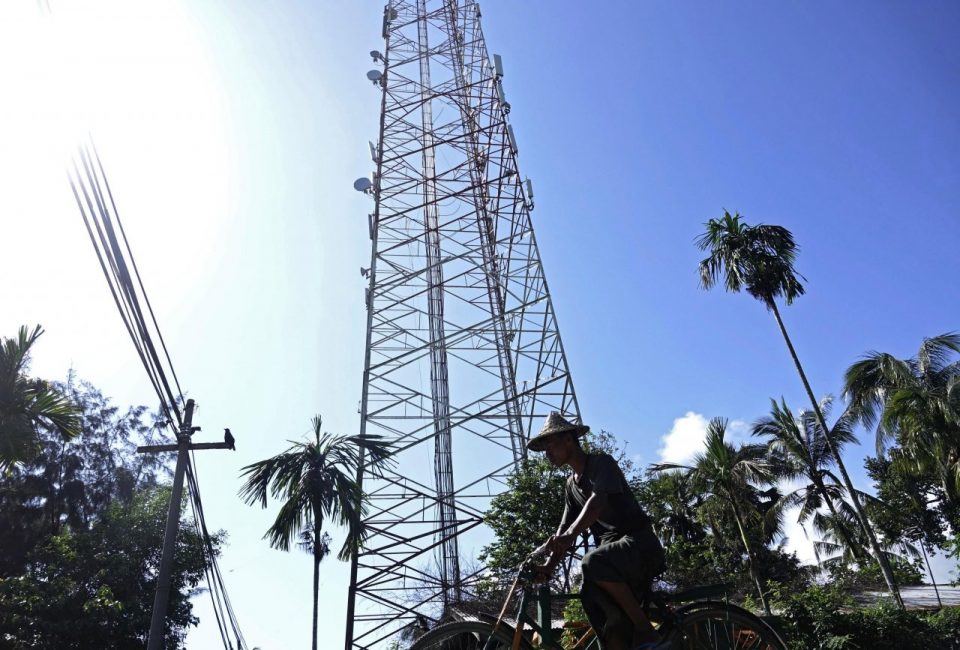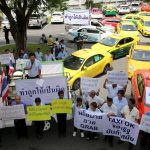Following the escalation of clashes between Tatmadaw (the military) and rebel group Arakan Army (AA) in conflict-torn Rakhine State, Myanmar recently ordered a temporary halt to all data services in nine townships in Rakhine and neighbouring Chin State, according to government officials.
Win Khant, permanent secretary and leader of the spokesperson team at the Ministry of Transport and Communications (MoTC), told The Nation on Monday afternoon that the situation was too “complicated” for the ministry to share updates with the public.
“It is true that our ministry ordered all the telecom operators to temporarily block Internet access in these townships,” he said.
According to the official, relevant authorities are closely monitoring the situation in Rakhine State to decide when the order will be lifted.
However, he declined to comment further on the issue.
Speaking from Nay Pyi Taw, Myo Swe, deputy director-general at the Posts and Telecommunications Department, told The Nation that it was still too early to publicise when the telecom operators would be allowed to resume their data services in the townships.
“It is not a permanent ban, but just a temporary shutdown,” he said.
“As we allow all the telcos to provide voice calls and SMS services, we do believe the ban will not hurt the residents living there. It will not hurt the day-to-day communications of the locals, as they can still make calls or send short messages to contact each other,” he added.
The deputy director-general denied widely spread rumours that the military had interfered in the decision, saying that the ban had been ordered by the Union government for the sake of the “public interest”.
“As the regulator, we have the right to give necessary instructions to all the telcos in Myanmar in order to protect the public interest,” he said, citing Article 77 of the country’s Telecommunication Law.
Article 77 allows the ministry to “temporarily suspend services or temporarily control telecommunications services and equipment when an emergency situation arises, to operate for the public interest”.
The ministry will play a role in ensuring the rule of law in the conflict-hit townships through the temporary ban, he said.
“We will allow the telcos to resume their data services as soon as the rule of law can be maintained and socioeconomic conditions return to normality in these restricted areas,” he added.
The ministry has not yet received any complaints about the ban from the telecom operators, Myo Swe insisted.
“We believe all the telcos know perfectly well about the situation, and they really understand why we decided to do so. We hope they are willing to cooperate with us,” he said.
When reached by The Nation on Monday, two telecom operators – Ooredoo Myanmar and Mytel – declined to comment on the ban, while Telenor Group said it had informed customers in the affected areas of the Internet ban via SMS.
Telenor Myanmar asked for further clarification on the rationale for the shutdown, and emphasised that freedom of expression through access to telecoms services should be maintained for humanitarian purposes, especially during times of conflict.
“The directive, which makes references to Myanmar’s Telecommunication Law, does not specify when the shutdown will end. As the basis for its request, the MoTC has referenced disturbances of peace and use of Internet services to coordinate illegal activities,” Telenor Group said in a statement.
Telenor Myanmar put forward arguments to ensure proportionality and limitations on the scope of the ban, and will further highlight them as part of continued dialogue with the authorities, the statement added.
Amnesty ‘deeply concerned’
A leading rights group, meanwhile, has condemned the ban.
Laura Haigh, a researcher on Myanmar at Amnesty International, told The Nation that the organisation had serious concerns over the shutdown.
“The shutdown is deeply concerning – not least, it’s taking place in an area where access for journalists and humanitarian workers is heavily restricted,” she said.
“The situation in Rakhine has deteriorated still further this year after the Myanmar military launched a major operation against AA. As is often the case, it is civilians who are bearing the brunt and all communities – Rakhine, Rohingya, Mro, Chin, Khami and others – are affected,” she added.
Haigh said Amnesty International had documented unlawful attacks which have killed and injured civilians, arbitrary arrests, torture and ill-treatment, extrajudicial executions, enforced disappearances and forced labour – all committed with near-total impunity.
“In this context, and with fighting ongoing, it is essential that activists and others in Rakhine and Chin States are able to share information about what is happening in the area,” she insisted.





